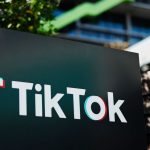Miriam Moore is the President of Default Services at ServiceLink, a provider of transaction services to the mortgage and finance industries.
“It’s not a good time to buy”—it’s a phrase that has echoed throughout the U.S. over the past year or two. Shockingly low housing inventory, high price tags and record-setting interest rates are making it tough for some would-be buyers to achieve homeownership.
As an executive in the mortgage services industry for many years, I know that it’s critical to understand how and why borrowers react to the ebbs and flows in market conditions. One of the ways my company keeps the pulse of today’s buyers and homeowners is by producing an annual consumer survey. This year’s survey found that many have abandoned the homebuying process over the last few years.
In fact, 49% of all respondents considered buying but ultimately decided against it. That’s more than double the number who said they abandoned the process in the 2022 study. Another 22% took it a step further and actually attempted to buy a home but were unsuccessful. Housing prices and high mortgage rates were the main deterrents in both instances.
However, despite the obvious factors that would disqualify and discourage some buyers, there’s a generation that is particularly adamant about achieving their homeownership goals.
Last year, I wrote an article where I laid out the depth of determination of the Millennial homebuying cohort. It touched on areas where they’re willing to take a leap of faith and how to best serve them in the 2022 market and climate. In this current article, I’d like to dive a little deeper, with even more insight into how they’re currently shaping the market, moving forward and making a name for themselves in the history books.
Optimistic Outlook
When many are retreating, Millennials (born between 1981 and 1996) are forging ahead. They’re not afraid to test the waters when others are telling them it’s not a good time. Why? It all comes down to their optimistic outlook. In the study, 60% of Millennials said conditions are favorable for buying a home compared with 53% for Gen-Z and 46% for Gen-X. Baby boomers, by the way, had the least positive outlook, and 53% said conditions were not favorable for buying.
Additionally, 61% of Millennials surveyed said they planned to buy a home in 2023; this flies in the face of those who still want to categorize them as the renter generation. In fact, Money reports there are now more Millennial homeowners in the U.S. than Millennial renters at 18.2 million and 17.2 million, respectively. Homeownership by this generation has spiked 64% over the past five years.
Willing To Give And Take
In my many years in the mortgage and transactional services business, I’ve seen quite a few trends emerge from this generation. While many Millennials may have purchased during the days of the pandemic when mortgage rates were historically low, those in the market today still overall desire to secure a slice of the American dream—even if it’ll cost them.
Considering the tight supply and competition right now, it appears they’re willing to pay higher price tags and interest rates in order to not lose out on the home they really want (the one with additional square footage, office space, tech upgrades, etc.). I believe that Millennials are savvy enough to know that when rates drop, they can refinance and secure a lower rate (and subsequent mortgage payment). In other words, they’re not afraid of a little short-term suffering for long-term gain, at least with respect to achieving homeownership.
In my company’s study, millennials led the pack, with 57% saying they were “very likely” or “likely” to refinance in 2023. That’s compared to 48% for Gen-X and 44% for Gen-Z. Millennials also refinanced in the highest numbers over the past three years. This continues the trend that other surveys show, where Millennials refinanced at almost double the national average in 2021. I see refinancing as a tool they’re not only using but planning to use when rates drop down into more favorable territory.
Opportunistic Group
Inventory is tight right now. In fact, one report shows that housing volume is only about half of what it was before the pandemic. Even when faced with availability issues, Millennials tend not to be afraid to look elsewhere for alternative housing options. Their resourcefulness has led to an uptick in interest in the auction market, for example, with 39% of Millennials surveyed saying they’re open to buying a house at auction.
That number was even higher (55%) in last year’s study, suggesting that the appetite for such properties remains healthy. Gen-Z, the up-and-comers behind Millennials, are equally as interested in auction properties at 39%.
How To Best Serve Millennials
Considering the evidence that shows they’re market savvy and eager to take the plunge into homeownership, how do we best serve this powerful generation?
If they’re in the market to buy a home or refinance, lenders should find ways to position themselves as proactive, trusted sources that provide information, direction and access. Survey results indicate this generation is most likely to lean on real estate agents and lenders during the home-buying process.
Additionally, I’ve found that Millennials crave transparency. When asked what they’d change about their mortgage experience, transparency into the steps and fees ranked highly. This underscores the importance of providing relevant information so they can make clear, informed decisions.
And finally, fit into their consumption patterns. These are digital natives who buy, sell and do business on their phones and tablets without batting an eye. They expect forward-thinking solutions that align with their digital lifestyle. In other words, electronic signing capabilities, virtual closing options and the like are more likely to get their attention.
Millennials have made their mark on the housing market, and I suspect they’ll be a force for several more years. However, it’s up to the rest of us within the industry to carefully consider how to better serve both this and future generations of trendsetting homebuyers.
Forbes Business Council is the foremost growth and networking organization for business owners and leaders. Do I qualify?
Read the full article here










